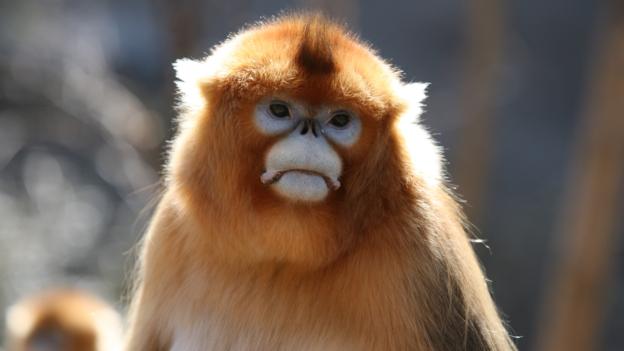Even the monkeys mourn the disappearance of a similar one

WHEN Thomas died, his friend Pan started to cry. He was not the only one. The others, too, who were usually busy eating lunch at that time, remained around the body of the companion lying on the floor. Before the corpse was removed, the alpha female of the group took a tuft of grass and brushed his teeth. In a video shot by a team of researchers at St. Andrews University in Scotland, the proof, certainly not the first nor the last, that primates, even those more distant from man in the evolutionary chain, recognize the death of one of their neighbors. And they cry.
To confirm this, two studies published last May on “Current Biology” and “Primates”, according to which, in the face of the disappearance of a member of the herd, monkeys would perceive the “change of state” modifying, consequently, their behavior. In the mountains of Qinling, in central China, a female monkey, renamed DM by researchers, returned from the herd after three days on the run, visibly injured. On his arrival the adults of the group surrounded her and caressed her for over an hour, making loud sounds, like alarm calls. Finally, when DM exhaled his last breaths, only the dominant male of the group remained beside her. He grabbed her hand several times and continued to hug her before retreating to the mountain. “James Anderson of Kyoto University in Japan, a specialist in thanatology of primates – certainly showed compassionate behaviors that would not have been possible under normal conditions “.
In other cases, on the other hand, after the departure of the partner a “wake” followed, during which a specimen participated manifesting his emotional stress with scratches and yawns. The study, which appeared this time in the specialized magazine “Primates”, analyzes the monkeys’ reactions to the accidental death of a female macaque hit by a car under the eyes of the pack in the Moroccan National Park. Two adult males watch over her throughout the agony caressing her wounds, the rest of the group remains to contemplate the corpse and begins to scream in despair when the researchers take away the carcass. Why? At the origin of this behavior “there would be an inability to break an emotional bond,” said Patrick Tkaczynskiof the University of Roehampton in the United Kingdom, “which occurs above all with the barbary macaques, notably ‘hippies’ compared to other species”. In short, as is the case for men, the price to pay for being “sociable animals” is suffering. The evolutionary history of the species is written in the mourning and pain of the monkeys for the dead comrades.


